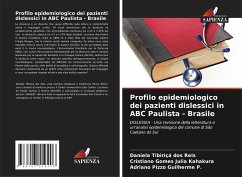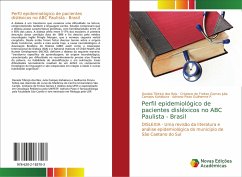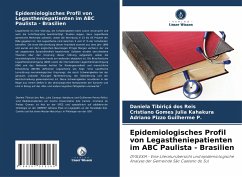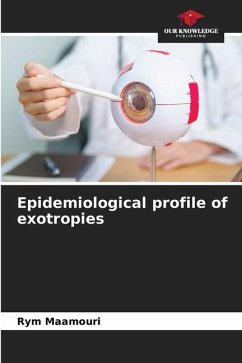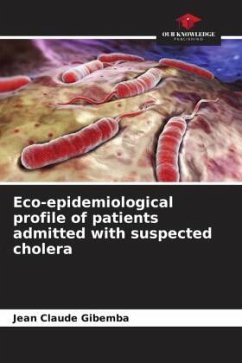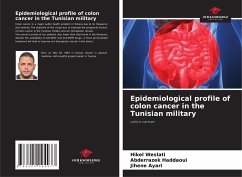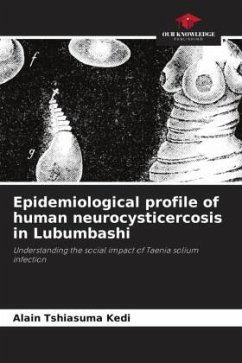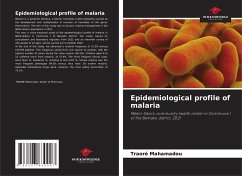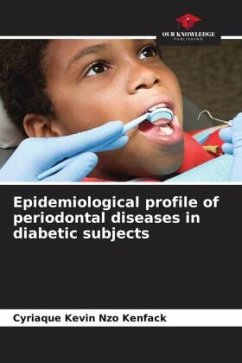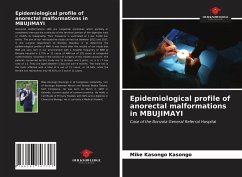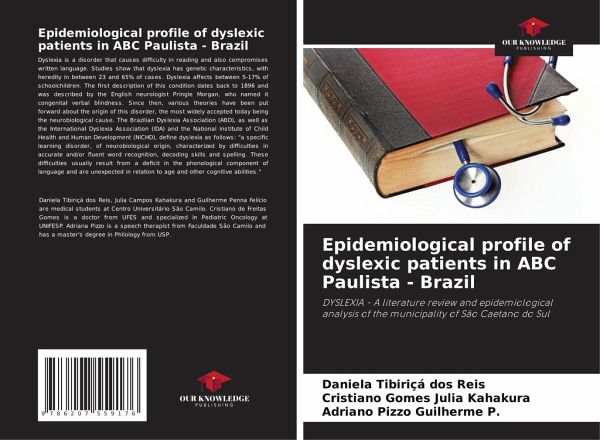
Epidemiological profile of dyslexic patients in ABC Paulista - Brazil
DYSLEXIA - A literature review and epidemiological analysis of the municipality of São Caetano do Sul
Versandkostenfrei!
Versandfertig in 6-10 Tagen
16,99 €
inkl. MwSt.

PAYBACK Punkte
8 °P sammeln!
Dyslexia is a disorder that causes difficulty in reading and also compromises written language. Studies show that dyslexia has genetic characteristics, with heredity in between 23 and 65% of cases. Dyslexia affects between 5-17% of schoolchildren. The first description of this condition dates back to 1896 and was described by the English neurologist Pringle Morgan, who named it congenital verbal blindness. Since then, various theories have been put forward about the origin of this disorder, the most widely accepted today being the neurobiological cause. The Brazilian Dyslexia Association (ABD)...
Dyslexia is a disorder that causes difficulty in reading and also compromises written language. Studies show that dyslexia has genetic characteristics, with heredity in between 23 and 65% of cases. Dyslexia affects between 5-17% of schoolchildren. The first description of this condition dates back to 1896 and was described by the English neurologist Pringle Morgan, who named it congenital verbal blindness. Since then, various theories have been put forward about the origin of this disorder, the most widely accepted today being the neurobiological cause. The Brazilian Dyslexia Association (ABD), as well as the International Dyslexia Association (IDA) and the National Institute of Child Health and Human Development (NICHD), define dyslexia as follows: "a specific learning disorder, of neurobiological origin, characterized by difficulties in accurate and/or fluent word recognition, decoding skills and spelling. These difficulties usually result from a deficit in the phonological component of language and are unexpected in relation to age and other cognitive abilities."





